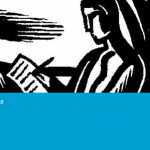 Fossoli Foundation (Web)
Fossoli Foundation (Web)
Venue: Carpi, Modena, Italy
Time: 15.-16.10.2021
Proposals by: 01.06.2021
Transitions of memory continues the activities of the Fossoli Foundation Study Centre along the lines of the previous Sites of Transit in Europe from WWII to the present. History, Spaces, Memories (2018) from which was taken the volume Camps of Transit, Sites of Memory. Past, Present, Perspectives about to be published by Peter Lang as part of the Cultural Memories series. The conference is rooted in the primary mission of the Fossoli Foundation, which is responsible for promoting research and preserving and conveying the history and memories of the Fossoli Camp and the places of memory in Carpi connected to it, the Museum and Monument to the Political and Racial Deportee in Carpi and the former synagogues.
The conference invites scholars from all disciplines interested in the topics of memory to confront the subject of the memory of violence, its stratifications, narratives and transitions during the 20th century and up to the present from a multidisciplinary and comparative point of view. Insights are requested that relate to the different methods and multiple tools for recounting a traumatic event, from historical reconstruction to representation in artistic and architectural form, from the collection and presentation of testimonies to the use of media and new technologies.
The papers can focus on Italian or foreign experiences – even making comparisons – and consider one or more aspects related to history, memory, the organisation of space, function and their narratives and representations, using a mono- or multidisciplinary approach.
The conference will be divided into four sessions:
- Places and modification of the traces of violence
- Violence and dynamics of memory
- The border as a place of trauma: stories and narratives
- Memory of violence: conflicts, revisions and denials



